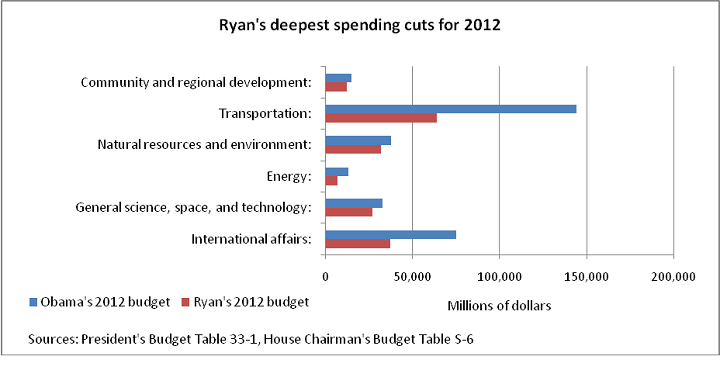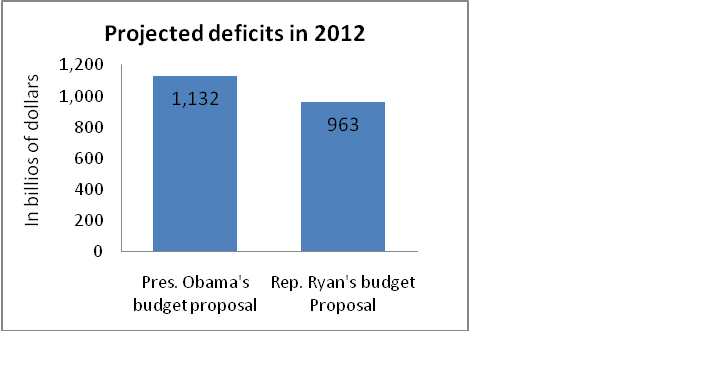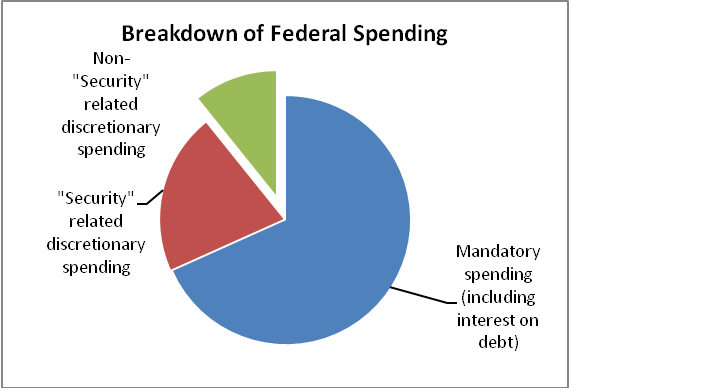Despite Deep Spending Cuts, GOP Plan Achieves Little Deficit Reduction in 2012
Posted:
|
Budget Process
The budget proposal released by Rep. Paul Ryan’s this week includes a slew of cuts to “non-security” discretionary programs in 2012. The deepest cuts are illustrated below. Rep. Ryan proposes we spend less than half as much as President Obama proposed on both Transportation and International Affairs. He would spend 46% less than the President on Energy. (For a full comparison of President Obama’s and Rep. Ryan’s 2012 budget proposals see NPP’s factsheet.)

However, these deep cuts would only have modest impacts on the deficit in 2012. Rep. Ryan estimates that his plan would reduce government borrowing next year by $169 billion, compared with the President’s plan (Table S-2 in Rep. Ryan’s proposal). Rep. Ryan’s plan would bring an end to President Obama’s “trillion dollar deficits”, but just barely: government would run a $963 billion dollar deficit in 2012. (See chart below.)

Why do Rep. Ryan’s deep cuts to spending fail to balance the budget? The reason is simple: his (short-term) cuts focus almost entirely on non-security discretionary spending, which represents a small piece of the Federal government’s overall spending (see chart below). In fact, even if the federal government eliminated all non-security related discretionary spending (i.e. no federal money for roads, schools, foreign aid, etc.), it would still be forced to borrow hundreds of billions of dollars in 2012. That is because our current budget hole is overwhelmingly the result of the recession and our slow economic recovery, not runaway discretionary spending.

Of course, Rep. Ryan understands this. His long-term plan for reigning in the deficit requires massive cuts to mandatory programs like Medicare and Medicaid (and a strong economic recovery). Rep. Ryan’s proposed cuts to these social programs are particularly large because he refuses to reduce security spending or increase tax revenues in his fight to close the deficit. (In fact, Rep. Ryan’s proposal includes $1.8 trillion in new tax cuts over the next decade [Table S-2 in Rep. Ryan’s proposal]). But whatever people think about Rep. Ryan’s long-term plan to balance the budget exclusively by cutting spending, it would seriously reduce deficits a couple decades into the future.
Next year is a different story. Rep. Ryan’s deep cuts to non-security discretionary spending would certainly hurt. But they would only slightly reduce government borrowing in 2012.